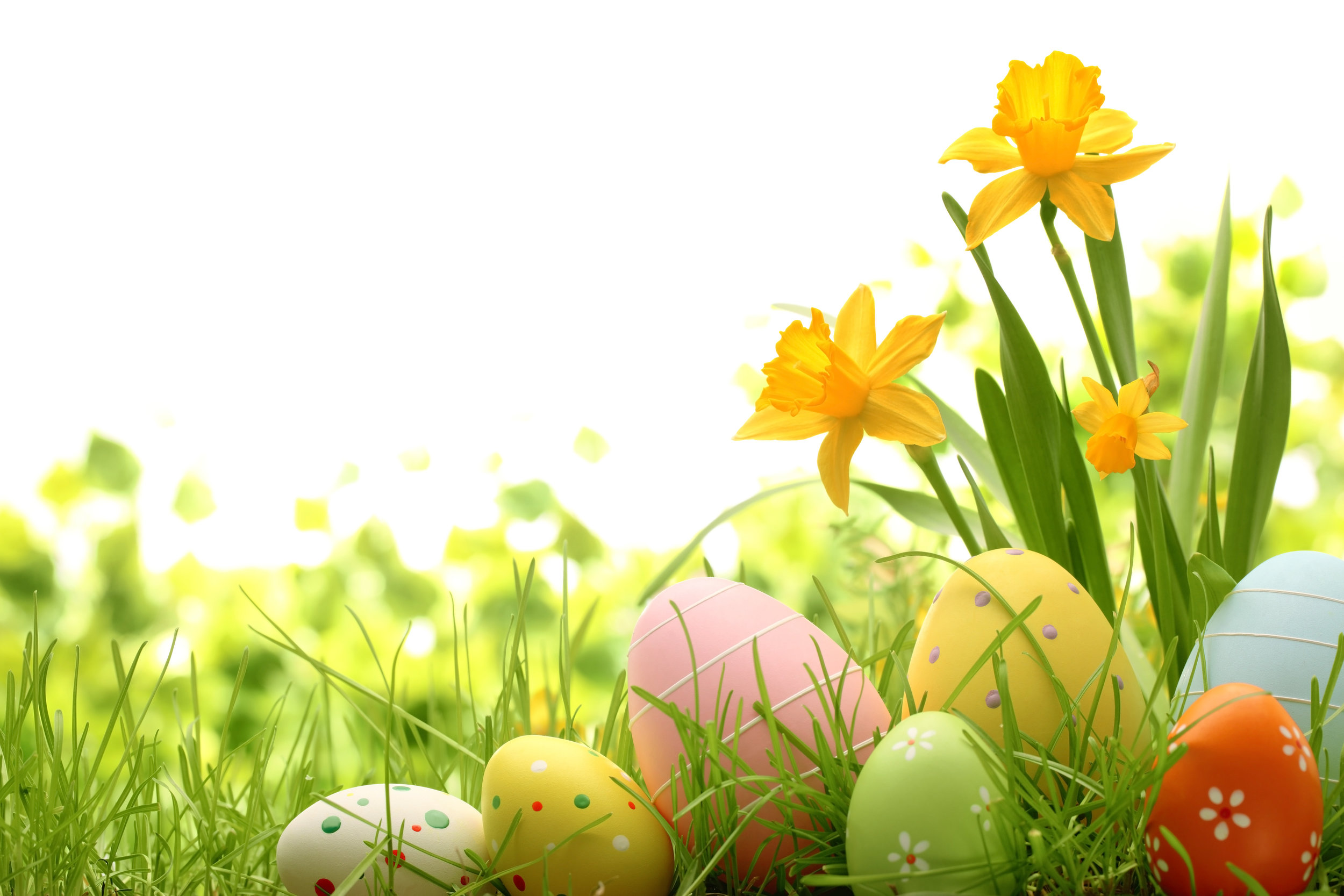How different USMC students celebrate Easter
Francesco Rampino LOGOS EDITOR
Image: Lily / ADOBESTOCK.
Easter: a celebration, perhaps, not as popular as Christmas in the societal sense, but for Christians all around the world, Easter is the most important feast (or “solemnity”) on the calendar. This is because it marks Jesus’ victory over sin and death, thus accomplishing His mission on earth. Easter Sunday itself is often referred to as the “Sunday of all Sundays” since, in the Church, Sundays all throughout the year are always small memorials of the Resurrection of Jesus from the dead. Nevertheless, on the cultural side of things, believers throughout the globe celebrate this most solemn occasion in various different styles and practices.
The city of Toronto, noted well for its vast multiculturalism, finds itself celebrating Easter in numerous different ways, and the students of its university (particularly the students of the University of St. Michael’s College, or USMC) are a reflection of this diversity. Each of them who indeed do celebrate Easter normally celebrate in a particular way. This may be due to their own cultural traditions, family traditions, parish traditions, and so on. That being said, I had the opportunity to listen to a number of students, each explaining to me how their families annually mark this joyous festivity. In presenting these different stories to you by means of this feature, I wish to show our readers that yes, for the most part, our religious and cultural identities are very much alive and strong in our hearts and in our minds. This I know since, in speaking with these students, it became evident to me that there definitely was (on the part of the students) a certain happiness and excitement in providing me with information on what they do, what they eat, where they go, or even what they sing on this great celebration they share with billions throughout the world.
Perhaps I may be biased in this decision, but let’s start with Italians. Not only since Italy is close to the headquarters of the Catholic Church, but also because there is a strong Italian presence at St. Mike’s (take for instance the Italian Undergraduate Students’ Cultural Association and even the Italian Studies Department). I spoke with The Mike’s own Téana Graziani, who was happy to enlighten me in how both her maternal and paternal families commemorate Easter. Now, for many who come from large families, we know how hard it often is to organize who goes to see which side of the family and when. But in Téana’s case, it’s really quite simple. “Over the Easter weekend every year my family does the same thing,” she said. “On Good Friday we go to celebrate with the nonni (grandparents) on one of my parents’ side, and on Easter Sunday we go to the other nonni to celebrate. We switch which nonni get which day every year so that it’s fair.”
She goes on: “We usually go to church on Good Friday. We used to go on Easter Sunday as well but recently we have only been going on Good Friday, not sure why this is. [On Good Friday we don’t eat fish], and what we eat on Easter Sunday depends on which nonni‘s house we are at.” On food, she elaborates further: “My dad’s family is Abruzzese, and my nonna (grandmother) on that side usually makes a lamb and egg dish. My mom’s side is Friulani, and my nonna on that side will also usually do lamb, but she will often roast it.” She adds: “On my dad’s side, a week or so before Easter, we help our nonna prepare the dough for the Easter bread that she makes. It is a dry cake with anise seeds, that is braided with hardboiled eggs, or just baked by itself in a tin. Each one of the nipoti (grandchildren [but it also means nieces and nephews]) get one for themselves, and after Easter lunch, the whole family shares one with caffè.”
She then tells me about another interesting tradition: “On my mom’s side, we will usually play a game (of which I am unsure of the name). We decorate hardboiled eggs and then line them up against the wall of the house outside on the driveway. We then stand back and throw quarters at the eggs. Whoever gets the quarter stuck in the egg wins the egg, and whoever wins the most eggs wins the game. I am not sure what the significance of this is, but we do it every year.”
Whereas in Téana’s family there are very specific traditions, my own family’s traditions are relatively simple as I know it. My late maternal grandmother used to continue numerous Easter traditions while she was still alive. Like Téana’s family, we also used to have the braided bread with egg, but we would use sesame seeds instead of anise seeds. We’d also paint eggs, but there was no game involved. On Good Friday, no food is made and very little is eaten since it’s a day of abstinence, fasting, and mourning. On Easter, though, we used to exchange marzipan lambs, which are basically candy/dessert lambs. This is apparently a popular tradition in Serbia, Croatia, and other eastern European countries as well. Real lamb on Easter Sunday, though, is a definite tradition that we still carry out today.
Besides the food, regular church attendance during Easter and the Paschal Triduum which precedes it (Holy Thursday, Good Friday, and Holy Saturday) is a must. This is very similar in the case of our friendly neighbours not too far east. Stephanie Houvardas, a first-year student at St. Mike’s, explains at length how important church attendance and religious observance is in her Greek culture. “Ideally people go to church every night of Holy Week,” she explains, “which goes from Palm Sunday to Pascha (Easter). Every day of the week there is a different and very specific service. The most important of these is on Saturday at midnight, when we turn off all lights in the church and every person holds a candle lit by the same original flame. It is very beautiful; everyone sings.” She then adds: “After Easter Sunday people greet each other by saying ‘Xristos Anesti’ (Christ Is Risen) and responding with ‘Alethos Anesti’ (Truly He Is Risen).”
On the culinary side of things, Stephanie proceeded to talk about what her family typically does: “Lenten fasting (which proceeds Easter) is ideally supposed to be no meat, fish, or dairy, but my family usually just goes without meat. On Easter Sunday we have all my family at my house where we eat lamb. This sometimes involves my grandpa roasting it himself on a spit in my yard.” Her family, too, has an egg game: “We also dye red eggs to play a game called “tsougrisma,” where you hit the ends of your egg with the ends of an opponents and try to be the last one without a cracked egg.”
Stephanie also noted that her Church, which is of course the Greek Orthodox Church, uses the Julian Calendar as opposed to the Gregorian Calendar used by the Roman Catholic Church. She expands: “Our Easter is often on a different date because it must occur after Passover, which falls on a different date every year. So, we start the liturgical season usually later than Catholics, but sometimes they line up.” This year, Stephanie and her family, along with Greek Orthodox Christians all around the world, celebrated Easter Sunday on April 8. The Catholics and other Christians celebrated instead on April 1.
Moving further east, onto Lebanon, we find much simpler traditions. Grace Elchami, herself a first-year St. Mike’s student too, explains that the Easter season for her family consists of “a family dinner, [which includes] traditional Lebanese sweets called maamoul.” And like many, they attend Easter Sunday Mass, as well as the liturgies of Holy Week and Lent. Similar traditions to Grace’s occur not too far west, either. Joshua De Jesus, also a first-year St. Mike’s student, says that in his Portuguese family, going to church is likewise very important, especially during Easter. Yet, in the kitchen, they have their own staples of the season. “We have seafood and fish on Good Friday, [especially Bacalhau (codfish)],” he says. “[But on Easter], we make Portuguese sweet bread and sometimes we boil four eggs and put a cross on top of the bread. [And of course] lots of sweets, such as cookies, pastries, and chocolates.”
These delightful traditions aren’t shared with everyone though. Going even more eastward to China, first-year St. Mike’s international student Hans Xu told me he has no actual Easter traditions or practices since “Catholics are an absolute minority in China; not even enough to start a local tradition,” and that Christianity was brought to China “by the Italians and the French.” Nevertheless, he mentioned that traditional Chinese couplets sometimes include messages about Jesus. One of them, translated by Hans, says: “With no beginning nor end, the true Lord of all created everything we see and hear. He preaches goodness and he preaches justice, He calls for the lost and saves the distressed for He has the power. There is a true Source of all things.” Nicole Lim, who is an international student from Singapore, says that, like Hans, in her country there aren’t any particular traditions, although she did say that her elementary school used to have Easter egg hunts.
Now let’s leap on over to South America, landing in Bolivia. Mateo Sanchez, another first-year St. Mike’s student, was born in Bolivia. “Unlike other holidays I experienced, this one takes after the Spanish Catholic tradition,” he says. “It’s the most important day in Christianity and Bolivia is mostly Catholic.” That being said, the religious aspects, like in many other countries, holds the greatest prominence since it’s of course the reason for the season. Mateo explains what is done: “First there are the processions with people wearing purple and the visiting of 14 churches for each station of the cross on Good Friday. Then everybody goes to Easter Sunday Mass and we get together with our extended families.” Mateo also makes mention of some discontinued social events: “In the past, most people gathered in the plazas with public figures participating. Lately there has been a bit less of that.” With regards to the kitchen, though, he wouldn’t say much: “One thing that was definitely unique was the food my grandmother cooked only for Easter, but that’s a secret.”
Moving now northward toward Trinidad and Tobago, whose Easter liturgical music I had the pleasure of listening to first hand. Jeremy Hernandez-Lum Tong, a third-year St. Mike’s student who is recognizable to anyone who frequents the Coop, told me that in Trinidad and Tobago, “everything is liturgically the same [as one would find in Canada] except the style of music.” An example of this is a popular rendition used in Trinidad of the ancient “Praeconium Paschale” (Easter Proclamation) known as the “Exultet,” which is sung during the Easter Vigil Liturgy of Holy Saturday. He played this very up-beat version for me in the Coop. With regards to food, “hot cross buns and Easter egg-related traditions are what [they] have.”
Arriving at home, where (as mentioned) culture is brought to us, we have a very different example of how people come to celebrate Easter. Emma Kennedy Graham, one of St. Mike’s 2017–18 Commuter Dons, is a convert to Catholicism. Apart from its given spiritual and liturgical significance which is evidently felt all over the world, Easter means a lot to her personally. The reason is because Emma was confirmed, like many “elect,” on the Easter Vigil celebration of Holy Saturday. This year will mark three years since her Confirmation. “A big part of my conversion story,” she says, “has to do with Holy Thursday liturgy, so I always attend this Mass with my boyfriend and his family. Then on Good Friday I usually attend the liturgy on my own or again with my boyfriend’s family, then get fish and chips with my parents at home. Then on Holy Saturday I love to attend the [Vigil] because it is where I was confirmed and I love to support the new neophytes joining our faith! Then on Easter Sunday my family usually comes over and we have a big turkey lunch. In the evening I go over to my boyfriend’s house for a gigantic Easter egg hunt.” Emma is also a youth minister at her home parish.
Dear readers, we haven’t gone all over the globe in this article; I assure you the countries you may have realized were missed weren’t missed deliberately. Nevertheless, let’s fix our eyes on the reality we find ourselves in here in Toronto. What Easter traditions do we know here? What opportunities are there for us to be apart of something spectacular? While I suggest you leave the culinary aspects of your Easter to your culture, there are a few Easter events throughout the Great Toronto Area. Besides the Holy Week liturgies which you may find in any parish in the Archdiocese, passion plays (depicting the Passion of Jesus) and religious processions have become sort of “non-official official traditions” in Toronto. At my home parish of St. Brigid’s Church in the East York area of Toronto, you can find both a stunning re-enactment of the Passion and Death of Jesus (a tradition that will reach 30 years next year), as well as a simple Procession on the Danforth; both free. St. Brigid’s Church is located at 300 Wolverleigh Blvd. and the Passion Play was at 6:00 p.m. on Good Friday (March 30). I myself directed the Passion Play. I encourage you, readers, to come out and support these traditions next year so that we can celebrate Easter together as a family.




